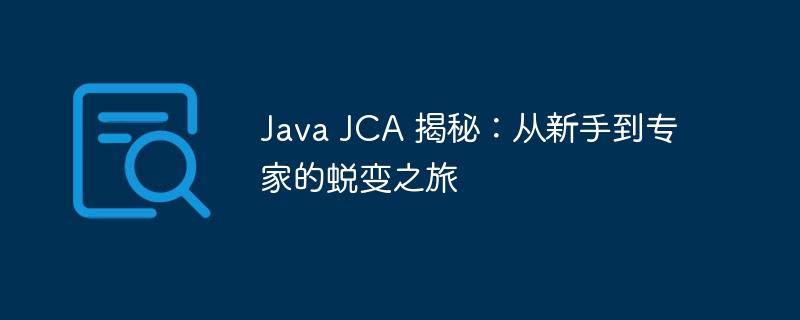

Java JCA is the abbreviation of Java Cryptography Architecture, which is a framework for encryption and decryption in Java. This article will lead readers from novices to experts to reveal the secrets of Java JCA. We will delve into various encryption algorithms, key management, digital signatures and other related topics to help readers gradually transform into Java JCA experts. Let’s start this wonderful learning journey together!
Key concepts
JCA API Overview The JCA API provides the following main components:
JCA Service Provider JCA services are implemented by service providers. Some common service providers include:
Use JCA Here is an example that demonstrates how to use JCA to encrypt data:
import javax.crypto.Cipher;
import javax.crypto.spec.SecreTKEySpec;
public class JcaExample {
public static void main(String[] args) throws Exception {
// 创建一个密钥
byte[] key = "mySecretKey".getBytes();
SecretKeySpec secretKeySpec = new SecretKeySpec(key, "AES");
// 创建一个加密器
Cipher cipher = Cipher.getInstance("AES/ECB/PKCS5Padding");
// 初始化加密器
cipher.init(Cipher.ENCRYPT_MODE, secretKeySpec);
// 加密数据
byte[] data = "Hello, world!".getBytes();
byte[] encryptedData = cipher.doFinal(data);
}
}Best Practices Here are some JCA best practices:
From novice to expert Becoming a JCA expert takes time and practice:
in conclusion By mastering Java Cryptozoology Architecture (JCA), developers can implement powerful security features to protect sensitive data and communications in their Java applications. Growing from novice to JCA expert is an ongoing process that requires a deep understanding of the topic and continued practice. This article provides a comprehensive Getting Started guide to help developers get on the path to becoming a JCA expert.
The above is the detailed content of Java JCA Revealed: The journey of transformation from novice to expert. For more information, please follow other related articles on the PHP Chinese website!




